(January 5, 2023) PM Modi’s LiFE Movement (Lifestyle for Environment) was the theme of the Indian pavilion at the COP27 in Egypt last year, and it speaks volumes about India’s efforts toward sustainable living. Taking this vision forward is a lineup of green startups that are working on ways to make the earth greener.
Global Indian turns the spotlight on some green startups which have sustainability at the core of their value systems, and are ready to shift the paradigm in 2023.
Kheyti
Winning Prince William’s Earthshot Prize in December 2022 was nothing short of a watershed moment for Khyeti as the spotlight was suddenly turned on the Indian startup, that designed the “greenhouse-in-a-box” for small hold farmers. With India home to 100 million small-hold farmers and one of the most climate-affected nations in the world, the startup helps reduce costs, increase yields and protect livelihoods in a region on the frontlines of climate change. Kheyti also trains and supports farmers to ensure their greenhouse is as effective as possible.
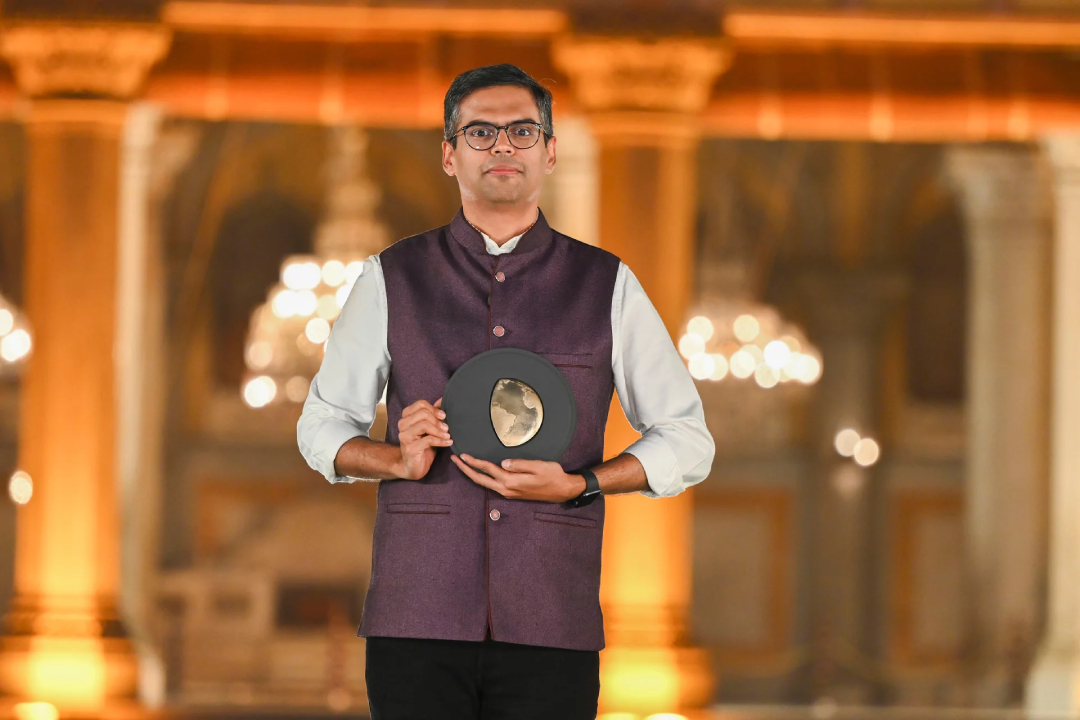
Kheyti’s Kaushik Kappagantulu with the Earthshot Prize 2022
“We are honoured to be recognised by The Earthshot Prize this year. The world depends on its small-hold farmers and yet their lives are amongst the hardest on earth. Our Greenhouse-in-a-Box is empowering farmers in India today. The steps we have already taken at Kheyti are now building to change farmers’ lives at scale,” said Kaushik Kappagantulu, co-founder, Kheyti.
Founded in 2015 in Hyderabad, it is currently working with 1000 farmers in six Indian states and aims to reach 50,000 farmers by 2027.
Phool
Ever wondered what happens to the flowers offered to the Gods in temples and mosques across the country? Well, the floral waste mostly makes its way to either dumping yards or rivers in the vicinity, adding to the pollution. It was at one such ghat in Kanpur that Ankit Agarwal, a native and an engineering student, had an epiphany. That watershed moment changed it all and gave birth to India’s first biomaterial startup Phool in 2017, which five years later, became one of the finalists at the Earthshot Prize 2022.
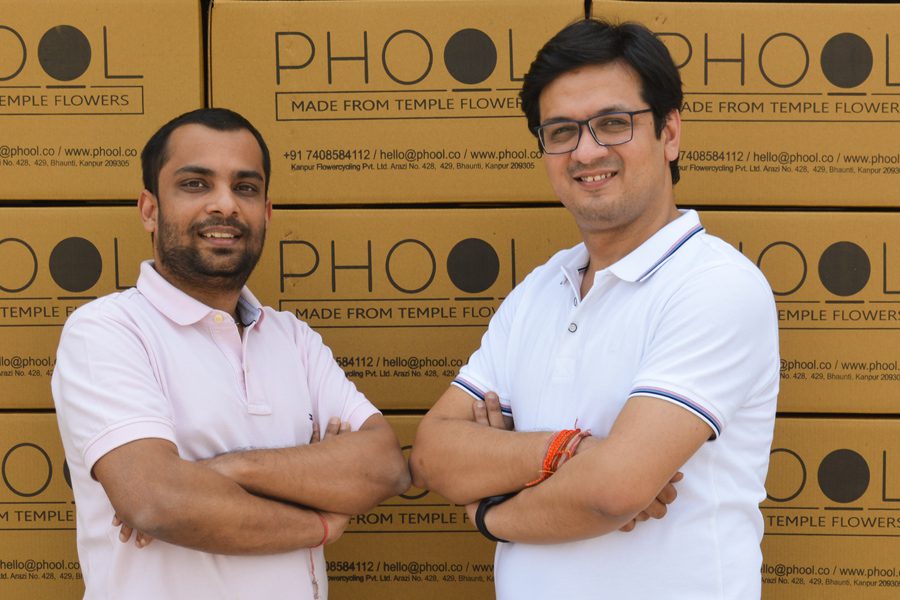
Ankit Agarwal and Prateek Kumar, the co-founders of Phool
The Kanpur-based startup accumulates floral waste from temples in Uttar Pradesh, including the biggest temple, Kashi Vishwanath, averting 13 tonnes of waste flowers and toxic chemicals from reaching the river every day. The waste is then handcrafted into charcoal-free incense sticks and essential oils through ‘flower cycling’ technology by women from Dalit communities that the startup has employed. Moreover, they convert the floral waste into a material “that behaves exactly like animal leather” – Fleather.
“Fleather solves multiple problems. First, there is the deep environmental footprint of animal leather. Second is the inhumane animal slaughtering. The third is the pollution caused by ceremonial flowers in rivers in India,” says Ankit Agarwal, the founder of Phool, which has now found a new home in Bodhgaya.
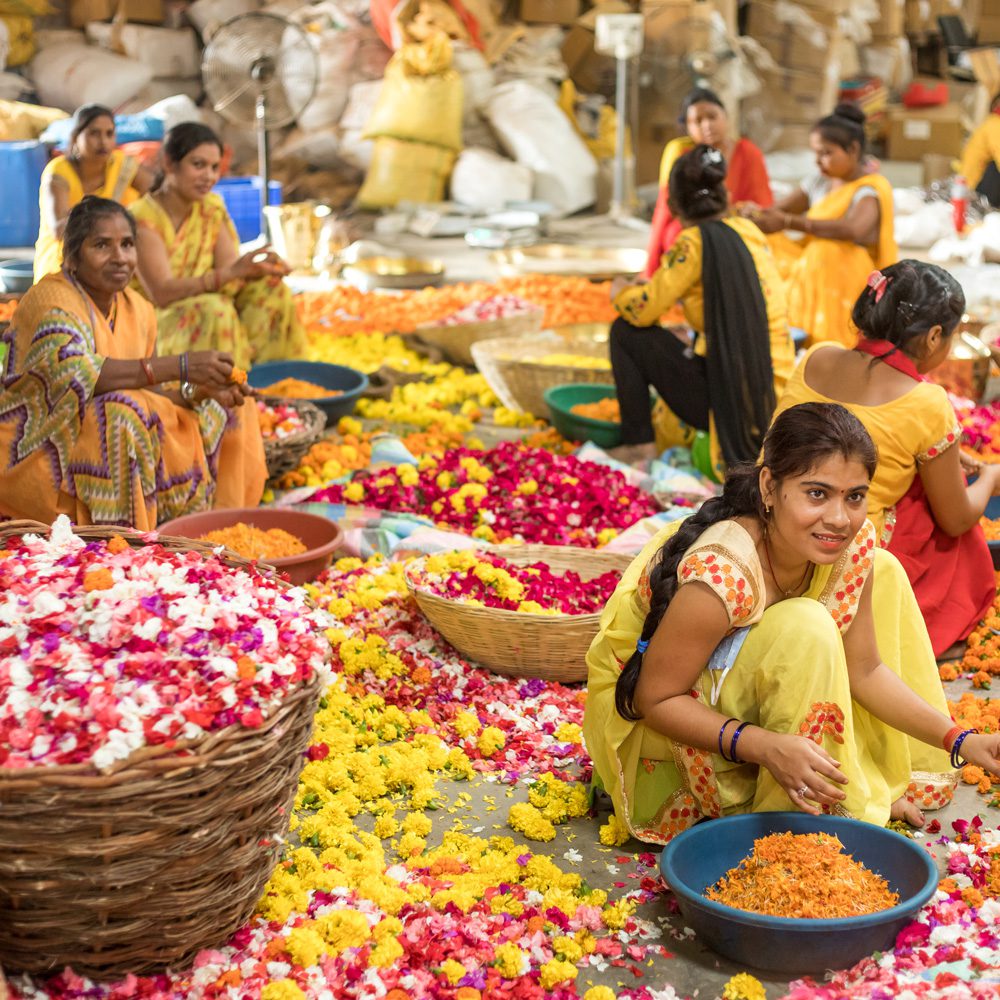
With three-fold growth in just two years, it has garnered interest from marquee investors, having raised $8 million in a funding round from Sixth Sense Ventures in April 2022, which the company will use to scale up operations and ramp up R&D efforts to make animal leather obsolete.
Takachar
Each year, Delhi is covered in a thick layer of smog during the onset of winter, courtesy of the unabashed stubble burning in areas of Punjab and Haryana. Delhi-based Vidyut Mohan is on a mission to cut through the thick haze with Takachar, a startup that’s fighting climate change by transforming massive amounts of waste biomass into marketable products. Started in 2018 by Vidyut and Kevin Kung, Takachar turns agricultural waste biomass into usable fuel and fertiliser, while reducing air pollution.
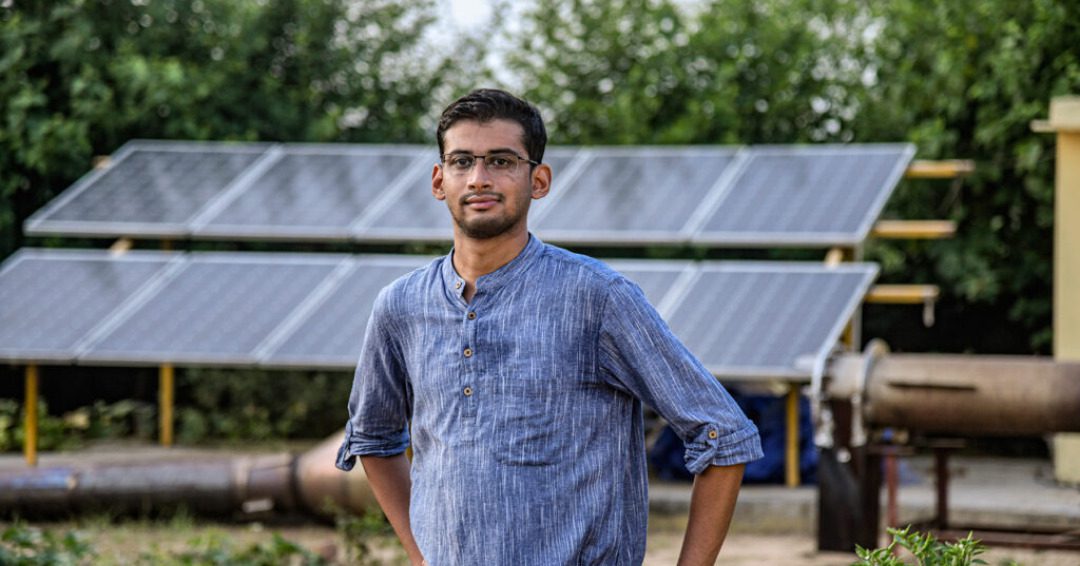
Takachar won the 2021 Earthshot Prize.
Takachar, which impacts four UN Sustainable Development Goals – Responsible Consumption and Production (12), Climate Action (13), Decent Work and Economic Growth (4), and No Poverty (1), is on a mission to fight climate change and create a livelihood for the rural population. The initiative made Vidyut earn a spot in Forbes 30 Under 30, and won him the Young Champions of the Earth 2020 award and the Earthshot Prize 2021, also known as Eco Oscars, under the Clean Our Air category.
“I have always been environmentally conscious growing up, and being passionate about energy access, I wanted to do something that not only creates income opportunities for the poor communities but also protects the environment,” Vidyut told Global Indian.
Banyan Nation
While pursuing a degree at Columbia Business School in 2013, Mani Vajipeyajula was aware of India’s environmental crisis – much of which was triggered by non-recycled plastic. He knew he had to find a solution to the looming waste crisis plaguing Indian cities, and from that germinated the idea of Banyan Nation – a startup that helps global brands use more recycled plastic instead of virgin plastic in mainstream products, thus enabling reuse in the manufacturing process.
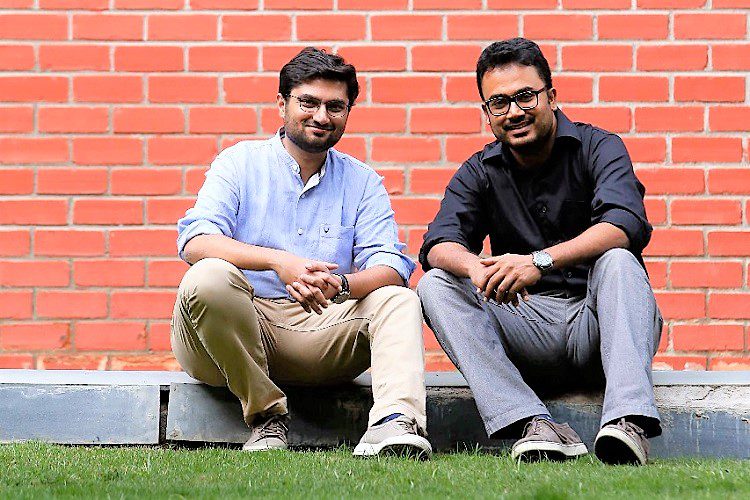
Mani Vajipeyajula and Rajkiran Madangopal, the founders of Banyan Nation
“Recycling activities in India are mostly driven by market forces that are informal, illegal, and largely invisible. Banyan is innovating and integrating the informal sector and providing consistent quality recycling. By taking a complete value chain approach, we have developed innovative technologies that clean plastics to eliminate all potential contaminants. It is our mission to help brands sustainably ‘Make In India’ by replacing the use of virgin plastic with recycled plastic that is comparable in quality and performance,” Mani had said in an earlier interview.
In 2021, Banyan Nation was recognised as a Technology Pioneer by the World Economic Forum for disrupting the recycling value chain via technology solutions that encourage source segregation.
Yulu
In 2017, Hemant Gupta, Amit Gupta, RK Misra, and Naveen Dachuri united for a mission – to create a bigger impact on society. And they did this with Yulu, a micro-mobility service provider that gives eco-friendly UMaaS (urban mobility as a service) which is a scalable solution for the first and last-mile commute options for citizens. It does not just focus on solving urban mobility problems but also addresses the rising air pollution and traffic congestion issues. Interestingly, it is the only company in the country, in the micro-mobility segment, operating with swappable solutions for EVs.
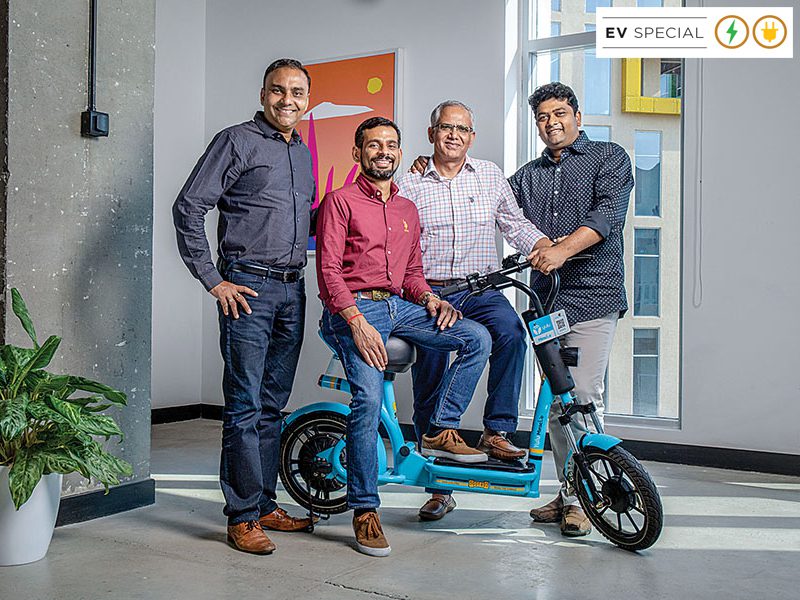
Hemant Gupta, Amit Gupta, RK Misra & Naveen Dachuri, the founders of Yulu
Working with InMobi in Bengaluru, Amit Gupta was irked by the constant traffic congestion during his commute between HSR Layout and Indiranagar. He remembered the success of bicycle-sharing companies like Ofo and Mobike, which he had seen on frequent trips to China. He decided to start a similar venture, customised to suit Indian needs.
View this post on Instagram
In September 2022, Yulu raised $82 million to expand its business model and grab a larger pie of the growing last-mile mobility segment.



